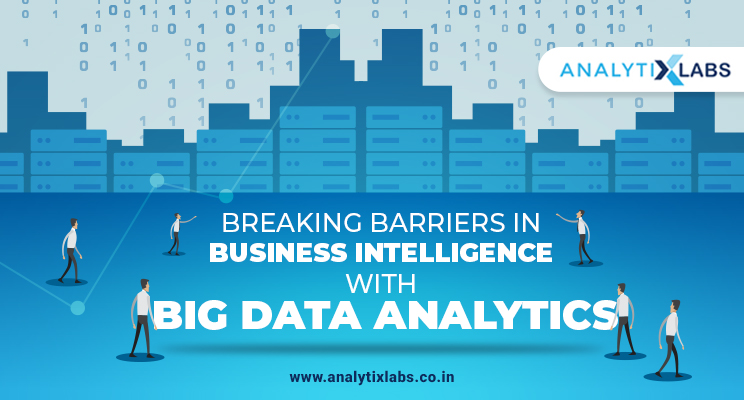
Advancements in Big Data aggregation and processing tools have made a huge impact on the way businesses operate now. Business Intelligence market is evolving at break-neck speed. The new-age tools help businesses to gather huge volume of data and derive meaningful inference to make real-time decisions. The pace at which data is gathered, processed, stored and analyzed have dramatically exploded, allowing certified Big Data analytics professionals to navigate complex Relational Database Management Systems using a mix of automation, machine learning and statistical algorithms.
This article will make you understand how big data analytics and certificate course in business analytics are an absolute must-have for career driven professionals.
What is Big Data Analytics?
According to Big Data companies that provide data and analytics platforms to their customers, there is no true definition to Big Data Analytics. It keeps evolving time to time, depending on the advancement of technology and data privacy standards. Big data is so complex in its processing and analytics that it would take 6-7 years of 10,000 data scientists working only on set of data to actually derive meaningful information from it. To uncover meaningful information, Big Data Analytics certification is necessary, as it empowers companies to find hidden patterns, correlations and market trends that could help them make more informed decisions in a real-time order.
Based on all the research and studies, Big Data analytics can be generally explained as, “a process of advanced analytics that answers basic and broad scale questions about various aspects of business operations and performance using scientific methods such as programming, cloud computing, predictive analytics, data visualization, and risk management. There are 1500+ job-related big data analytics responsibilities and tasks that certified Big Data Analytics professionals may have to carry out in their career.
Why Learn Big Data Analytics?
Big Data analytics allow certified professionals to stay ahead in the curve of advanced data management and analytics. On an average, a data analyst trained in Big Data algorithms and infrastructure management, they earn 10 times higher than general data analysts. Using advanced tools and technologies provide direct access to understand customer demand, supply and demand status, industry policies, and competition analytics.
By studying Big Data research, professionals enrolled with certification courses can fully comprehend the minute by minute details of technological developments, growth opportunities in the landscape, threats and opportunities for businesses and future market trends that are likely to disrupt the market if it were to be driven at its current pace.
Trends in Big Data that Disrupt the Market
Expanding Frameworks of Big Data Infrastructure
Hadoop-based stores and Big Data markets are expected to expand their horizon into making SQL more interactive and solve queries faster. New-age frameworks like Exasol, MemSQL, Apache, Hive, Presto and so on, could fully remove the barriers currently present between traditional data warehouses and Big Data infrastructure.
The Rise of Non-Hadoop Access Points
For long, Hadoop has ruled the roost. But now, it’s time to focus on non-Hadoop BI access points that empower platforms with data and source-agnostic to grow better and faster. Those built on Hadoop only platforms would lag in adoption and scaling in the coming future.
Cybersecurity and Data Governance are Keys to New-Age Analytics
Each year, businesses lose $2 billion to fraud and cyber-related risks. This directly eats into the revenue opportunities and endangers scope of investing more resources into IT, data management, analytics and self-service platforms. Using skills of Big Data Analytics, platforms would become self-reliant in recreating and fortifying models around predictive, Machine Learning, Cyber Security and Fraud Analysis – all these are likely to become the mainstay of Business and IT operations by 2022.
Variety of Data would Light Up Big Data and Analytics
Out of the 4Vs, data-driven companies are more likely to focus on Variety compared to Velocity, Veracity and Volume. By default, Apache Spark has always been a growing force in Big Data analytics. In fact, 70% of business analysts, IT professionals and data scientists are likely to favor working with Apache Spark compared to traditional MapReduce, especially when businesses are focused entirely on developing interactive dashboards, visualizations and real-time streaming.
By 2021, machine learning would be the single largest factor in deciding leaders from laggards in self-service software industry – something that should be taken very seriously by data-driven companies and Big Data analytics professionals.
The biggest change in approach to data analytics has been observed in the growth of Social Media, Email and Lead-gen data collected from across platforms, old and new.
As long as Big Data Analytics trends stay relevant to providing Customer Experience at ease, you have a winner at hand.








1 Comment
Nice and well planned blog
Love reading the information.